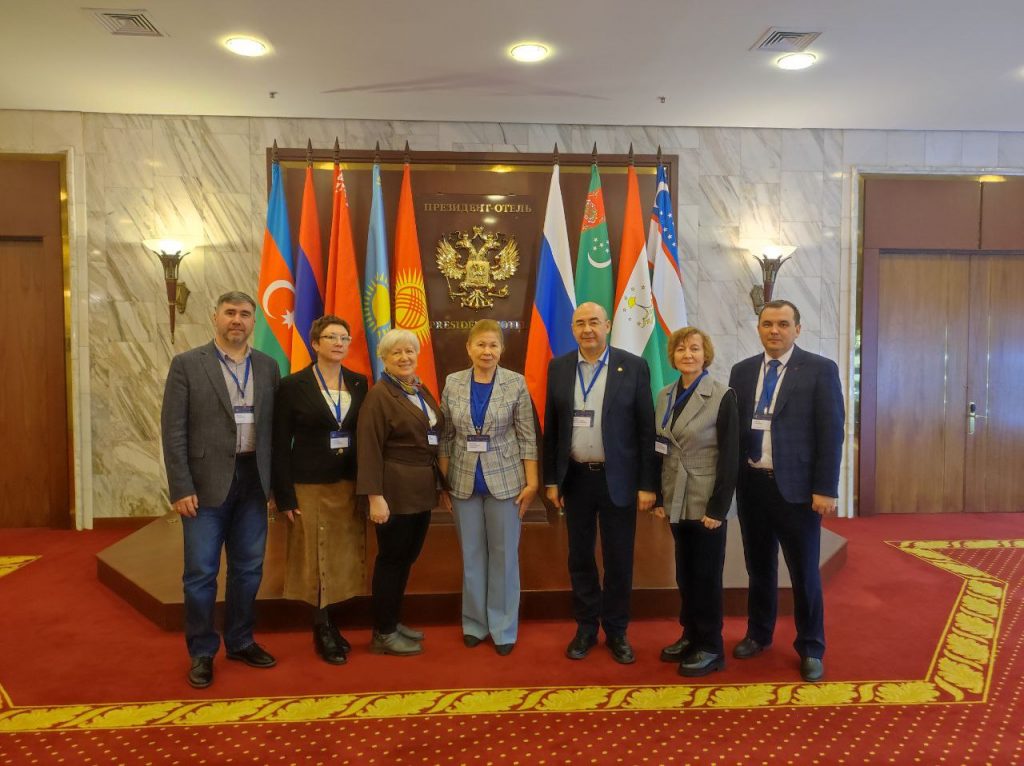KFU contributing to First Eurasian Congress of Linguists

The event, taking up 9 to 13 December, is dedicated to the 300th anniversary of the Russian Academy of Sciences and is one of the most important scientific events of this year.
A delegation from the Institute of Philology and Intercultural Communication of Kazan Federal University, headed by Director Radif Zamaletdinov, is taking part in the congress. In total, the event brings together more than 500 scientists from 45 countries.
The goal of the event is to create a platform for the exchange of opinions and experiences, where linguists from all over the world could present their research on solving the most pressing problems and introduce young people to the latest achievements in language learning.
Institute representatives – Chair of the Department of Tatar Language Gulshat Galiullina, Professor of said Department Fanuza Nurieva, Professor of the Department of General Linguistics and Turkic Studies Alfiya Yusupova and others will deliver reports and take part in round tables. Public discussions on significant linguistic topics are planned for a wide audience.
The originators of this congress are the Kazan Federal University and the Institute of Linguistics of the Russian Academy of Sciences. Several years ago, they won the right to hold the main world scientific linguistic forum in Kazan in 2023 – the International Congress of Linguists (ICL), held every five years by the Permanent International Committee of Linguists – the oldest and most numerous international language studies community.
Kazan Federal University is acting as a partner of the scientific event, and one of the key organizers of the event, a member of the organizing committee, as well as the scientific director of the section of Turkic languages is Radif Zamaletdinov.
“The main topic of our congress is the preservation of the linguistic diversity of the world. Due to globalization, the process of language extinction has become a global problem. According to forecasts, of the 7,000 languages existing on the planet, only half or even less will remain by the end of this century. An important challenge and the key meaning of the congress is to try to slow down the process of language extinction, at least to attract the attention of a large circle of scientists and the general public to this problem,” he notes.
Among the important tasks of the congress Zamaletdinov highlights the opposition to the isolation of Russian science. He emphasized that it is important to preserve and develop the global network of scientific connections.
“It is very valuable that scientists from the USA, the Netherlands, Germany and Finland – countries with highly developed linguistic science – came to the First Eurasian Congress of Linguists. And the Deputy Secretary General of the International Congress of Linguists, Dutch linguist Camille Hamans, who addressed the participants yesterday with a welcome speech, announced the intention of this organization to continue cooperation with its Russian partners, including Kazan Federal University,” adds Zamaletdinov.

